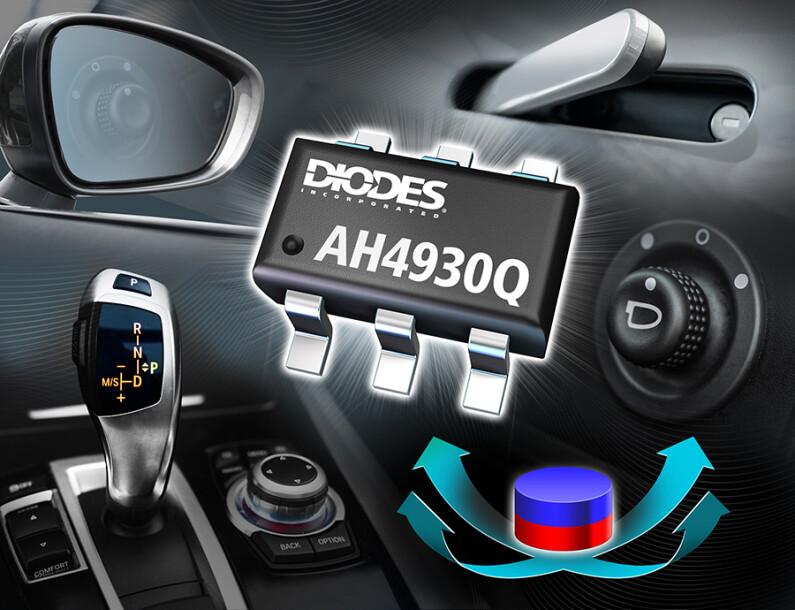簡化汽車控制系統的動作偵測和量測

作者:Charles Kuo,霍爾感測器產品線經理
如今的汽車非常複雜,包含越來越多的裝置、功能和電子系統。汽車設計人員必須確保這不會讓駕駛員和乘客感到不知所措,還需要提供可靠耐用、易於操作、符合人體工學且的控制裝置。
以往許多車載控制器會使用需要物理接觸的元器件,例如電位器。不過,這些基於接觸的元件久而久之會磨損並變得不那麼準確。
反觀非接觸式感測器,可以提供精確、可靠的解決方案,不會因為長期使用而降低性能。能夠受益於非接觸式感測器的車載裝置包括:資訊娛樂系統上的旋轉和推撥選擇器、變速桿、門把手和門鎖,以及電動座椅調節器。
為什麼選擇霍爾感測器?
霍爾效應感測器可以提供上述這些汽車應用所需的準確度和可靠性。
霍爾效應由埃德溫·霍爾 (Edwin Hall) 於1879年發現,描述承載電流的導體置於磁場中時,是如何產生電壓的。通過測量產生的電壓,可以確定磁鐵與導體之間的距離。
在運動控制器中,例如操縱桿,磁場通常由安裝在操縱桿運動部位的一個或多個永磁體產生。而霍爾效應感測器通常安裝在控制器不可移動的部位,用於測量由磁鐵運動而產生的磁場變化。
準確的 3D 感測
Diodes公司的AH4930Q是一款汽車3D磁性線性霍爾感測器,提供高精度12位數據,分辨率低至1高斯;另外還有一片片上溫度傳感器,提供精確補償。
該傳感器具有強大的信號路徑和高分辨率ADC,能夠精確測量三個軸上的磁場,這樣可以精確解碼三維線性和旋轉運動以及位置信息。該感測器的I2C介面可與微控制器進行簡易、靈活的通訊,資料傳輸率高達1Mbps。
為了在嚴苛的汽車環境中可靠操作,AH4930Q已通過AEC-Q100 1級認證,溫度範圍擴展至-40°C至+125°C。對於工業應用,Diodes也提供AH4930商業級版本。
AH4930Q有三種工作模式和可變更新速率;在斷電模式下,電流消耗僅為 9nA。在工作期間,10Hz採樣率的典型功耗非常低,僅為 13μA。即便切換到快速採樣模式(3.3kHz)也僅消耗3.8mA,因此能夠高效感測極具動態、快速變化的控制器。
霍爾感測器(例如AH4930Q)為汽車接近、推動和旋轉運動感測應用提供高準確度的解決方案。霍爾感測器的非接觸式操作方式提供出色的長期可靠性,並且方便與主機系統集成——確保駕駛員和乘客能夠控制車輛的所有功能。
符合汽車標準 - 符合 AEC 標準,在通過 IATF 16949 認證的工廠製造,並支援 PPAP 文件。
所有商標均為其各自所有者的財產。
© 2025 年,Diodes 公司。版權所有。
